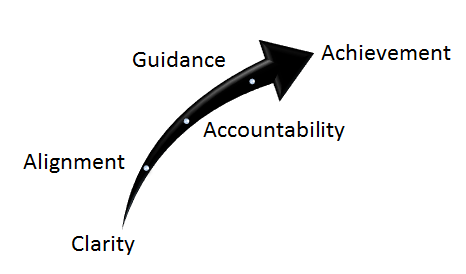|
It's wonderfully contagious, and it's highly addictive. We crave it. It is the feeling of inspiration. It creates energy, focus, and action. It builds resilience and determination. It encourages collaboration and teamwork. It generates invention, creativity, and learning. It ultimately creates that sense of achievement we all desire from our work. It is that moment you decided to start your business, when you decided that you were ready, and that it was time to take action. So imagine that moment instilled in your team, and it being their ongoing inspiration to grow your business with you. To do it, you have to ignore a lot of the things that you have read, experienced, or been advised about HR. In many larger organisations, the experience of working with HR is very much like the experience of working with purchasing or contracts management. The corporate approach to HR especially does not work in small businesses. Actually, we'd argue it doesn't work particularly well in large ones either. It's usually overly focused on reducing risk rather than nurturing inspiration. The corporate approach doesn't address any of the aspects of creating a great place to work. As a small business owner, especially with a small team where every person can have a big impact, it is far more helpful to have the emphasis on inspiring contribution, ownership thinking, and accountability. We're certainly not suggesting that risks should be ignored, just that it needs some perspective. Excessive focus on compliance with tasks and nurturing inspiration sit at opposite ends of a spectrum. It needs a balance, and when you get it wrong then accountability drifts too far towards the manager. The typical corporate HR could be described as the 'purchasing' approach. THE 'PURCHASING' APPROACH TO HR The HR function in most large organisations actually looks very similar to the contracts and purchasing function. Managers go to HR to source a 'resource'. HR find a bunch of candidates, some interviews are done, and someone is chosen. Then HR do up a contract and establish the rules for managing the 'resource' to ensure compliance with the contract. It's just like engaging a supplier, only without the purchase order. If you look closely though, the task-based job description is kind of the HR version of the purchase order. The performance review is the contract management part - making sure the 'resource' is complying with the contract specifications. So much for employee engagement and loyalty then, and any accountability by the 'resource' arising from this process is purely accidental. Why would they risk going 'above and beyond'? Focusing on compliance does not create accountability. It usually creates compliance to the bare minimum needed for people to keep their job. In so doing it leaves all of the accountability with you, the manager. When things don't go to plan it is you who will have to stand up, it is you that looks to take the corrective action, and it is you who is left to complete the tasks that needed to be done. People become 'resources' to be managed. There is nothing inspiring in this - for anyone! This process does not encourage invention, creativity, or learning. In fact, it may well discourage them because the person engaged in this process, who is being managed, is more likely to want to ensure they comply with the job description, even when they believe the tasks in it are not the best thing for the business. We've worked with a local manager in a large multi-national organisation who recognised this. He engaged us to help him build his team and instil an approach for nurturing their growth. The company's HR approach, based on compliance rather than relationships, was actually a barrier to achieving collaboration, teamwork, entrepreneurship, and accountability. A different approach is needed, and thankfully there is one. A relationship approach shifts the focus towards achievement and accountability.
The relationship approach starts with having mutual clarity of the outcomes that need to be achieved. Alignment takes place when the team members themselves can establish and agree the tasks that will deliver the desired outcomes. Accountability is the willing agreement between team members and managers on what achieving the outcomes will look like, and the participation in an ongoing and meaningful conversation about performance. Then the manager can give guidance as different situations arise and there can be a genuine dialogue based on a common desire to achieve the outcomes. When things don't go to plan, the manager can guide their team on the corrective actions. The team can accept the accountability as it has already been established and agreed on what performance will look like. This approach is more natural and effective than the purchasing approach. Especially as a small business owner, where the business is connected to their personality, this approach builds the relationships in the business that allow you to grow your brand. It is less time consuming, and enables more meaningful conversations with your team about their contribution to the business. It inspires. We built a system for instilling this HR approach. We created it because we saw the lost opportunity that occurs when small business apply the purchasing approach to building their teams. When small business owners are able to share their inspiration, it is contagious for their team. It is the foundation for ownership thinking and in creating the willingness for your people to put their own reputations on the line to help grow your business.
0 Comments
Leave a Reply. |
AuthorsH Agents write about the joys and challenges of entrepreneurship and managing people. Archives
May 2024
|
(c) Copyright 2024 INCOMMAND Pty Ltd. View our privacy policy and data security statement. Please note that your use of The H Factor system is subject to our Terms of Service.




 RSS Feed
RSS Feed